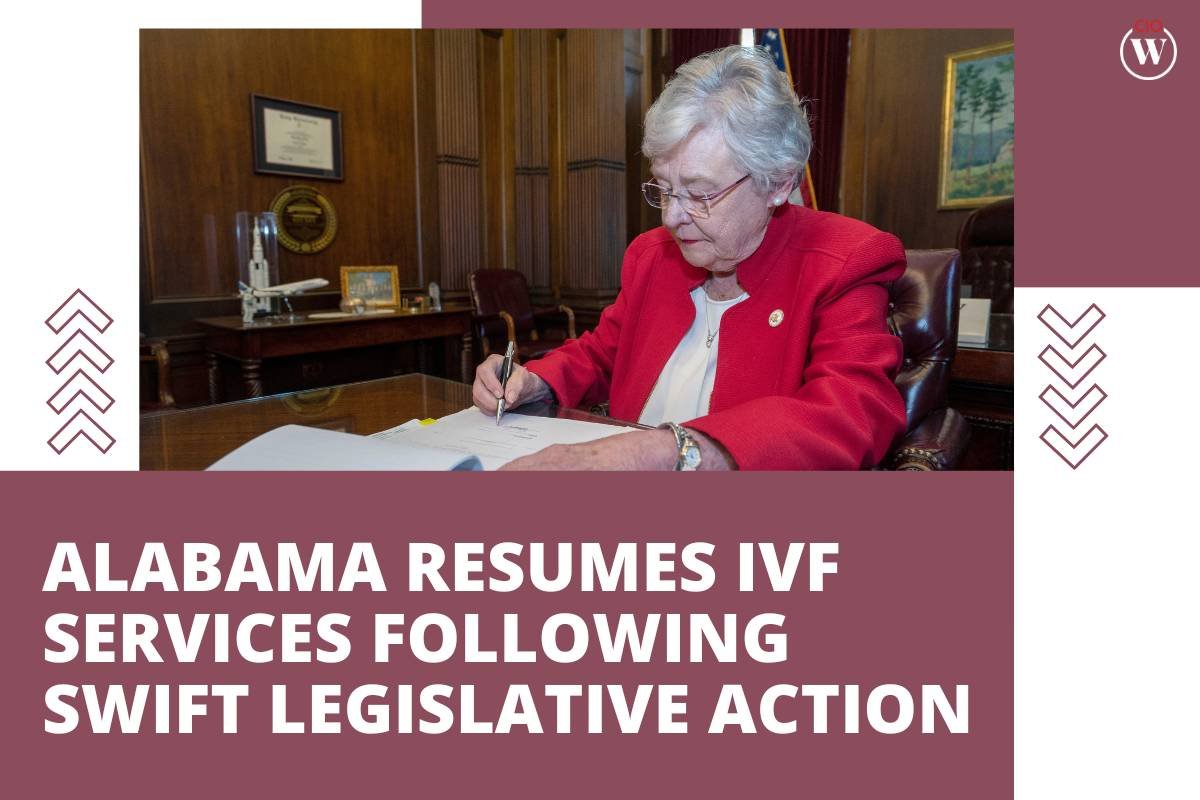Source – Reuters
Providers in Alabama are swiftly resuming in vitro fertilization (IVF) services after Governor Kay Ivey signed a new bill into law to address legal concerns arising from a recent Alabama Supreme Court ruling. The ruling declared that frozen embryos have the legal status of human beings, exposing those who destroy them to potential liability for wrongful death. Three of the state’s IVF providers immediately paused services, prompting urgent calls for legislative action.
The new legislation, passed by the Republican majority in both the Alabama House and Senate, grants civil and criminal immunity to IVF providers and patients for the destruction or damage to embryos, with retroactive application. It also extends immunity to manufacturers of goods used in the Alabama IVF process or the transport of stored embryos. While two providers are resuming services, the clinic central to the Supreme Court case claims the legislation falls short of providing adequate legal protection.
Mixed Reactions and Concerns over Broad Immunity
Alabama IVF patients express a cautious sense of relief following the passage of the new legislation. While some, like Gabbie Price, acknowledge the immediate need for a solution, they view the law as a temporary fix or a “Band-Aid.” Concerns are raised that the broad immunity meant to protect providers from liability might also shield them from standard medical malpractice claims. The Alabama House Democratic Caucus criticizes the legislation, terming it “short-sighted” and stating it fails to address the legal questions surrounding embryonic personhood.
US Sen. Tammy Duckworth, a Democrat, criticizes the legislation for not making it clear that an embryo is not considered a human being. State Sen. Larry Stutts, the lone Republican lawmaker voting against the measure, argues that it primarily protects providers and suppliers, limiting the recourse for mothers involved in IVF. Legislators, including Republicans Terri Collins and Tim Melson, acknowledge that the new law is a temporary solution, providing immediate relief for affected families while more permanent solutions are considered.
Alabama IVF Patients Express Cautious Relief as Services Resume
Amid the legal and legislative developments, IVF patients are cautiously optimistic. Gabbie Price highlights concerns that the broad immunity could hinder efforts to establish necessary regulations for patient safety. Elizabeth Goldman, a uterus transplant recipient, expresses gratitude to lawmakers for swiftly reopening clinics, allowing her IVF journey to continue. Gabrielle Goidel, who faced a disruption in treatment, is brought to tears by the news of the legislation, feeling immense relief and hope.
Clinics, including Alabama Fertility in Birmingham and the University of Alabama at Birmingham, are set to resume IVF services. Alabama Fertility, which canceled dozens of frozen embryo transfers, plans to celebrate the resumption with patients. Dr. Warner Huh of the UAB Department of Obstetrics and Gynecology appreciates the swift legislative action, emphasizing ongoing efforts to advocate for further protections for IVF patients and providers.
The Center for Reproductive Medicine at Mobile Infirmary, defendants in the Supreme Court case, is not yet resuming Alabama IVF services, underscoring the ongoing complexity and sensitivity of the situation. Governor Ivey acknowledges that while the new law provides immediate assurances, more work lies ahead to comprehensively address IVF protections in the state.









